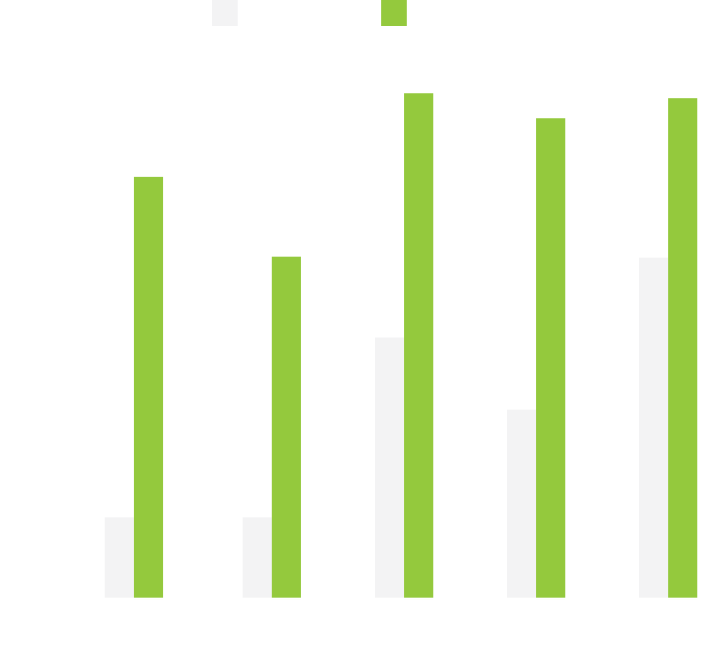Given the rising popularity of GPS tracking, it’s no surprise that more than one third of 1,000 US employees in an independent survey* had been tracked by GPS in the workplace. But how those employees — whether they have experienced GPS tracking firsthand or not — feel about it might surprise you.
THE SURPRISING TRUTH
What Employees Think of GPS Tracking in the Workplace

The Growing Trend of Workplace GPS

Perceptions Vs. Reality
What’s the #1 difference between employees who have been tracked and work with GPS and those who haven’t? It’s how they feel about it.
Of employees who haven’t been tracked with GPS at work, only 16% have a positive opinion of this type of technology, while 38% have a negative opinion.
Of employees who have been tracked with GPS at work, 54% have a positive opinion, while only 5% have a negative opinion.

Are Employers Breaking the Law?
Both employees who had experience with GPS and employees who didn’t expressed concerns about being tracked after hours (46% and 66% respectively).
But what’s more alarming is that of employees who had been tracked using GPS, one in 10 responded that they were being tracked 24 hours a day — a big legal no-no in all 50 states. Another 30% said they weren’t sure exactly when tracking stopped for the day.
45% of employees who had been tracked with GPS either believed that they were being tracked 24/7 or simply weren’t sure. One in five employees said that the tracking was switched on without warning.
While it’s unclear whether this is perception or reality, the legal ramifications are clear.

Top Concerns from Employees
When asked to rank their concerns about workplace GPS tracking in five categories, employees who had experience with GPS were significantly less concerned than their GPS virgin counterparts in all seven categories.

Employees Have Nothing to Hide
When it comes to concerns about GPS tracking in the workplace, many employers assume their employees resist because they have something to hide.
However, the data tells a different story. The #1 concern of employees who don’t have previous experience with workplace GPS tracking is data drain. And the #1 concern for employees who do have experience with GPS tracking is battery drain.

How Much Data and Battery Does GPS Use?
Ironically, only 9% of all employees surveyed cared about how much data or battery life a personal app used — which is surprising given that apps like Facebook and SnapChat are some of the most notorious battery and data hogs, while many workplace GPS apps use far less data and battery life.
Battery and data drain can be a confusing subject for even tech savvy employees. Taking the time to educate employees about how to view the app’s data and battery usage can make a big difference.
How to Educate Yourself (and Employees) About GPS Data and Battery Drain.

Facebook Vs. GPS: It’s All About Trust
When asked how they make a decision about whether to enable location services for a given app, the top response was simply “When I trust the app I’m using.” The second highest response was one of utility — “If the app requires it.”
It’s a stat employers introducing GPS for the first time would do well to remember. Along with extolling the virtues of GPS tracking in the workplace, business owners and managers may instill more confidence simply by educating employees about the app itself, its security — its trustworthiness.

Are Attitudes Evolving?
Seven out of ten employees who have used GPS in the workplace aren’t concerned about their employer knowing their location. And the majority who have no experience with GPS aren’t worried either.
Many employers make the mistake of assuming that employees’ resistance to GPS tracking is tied to its primary benefit to employers — pinpointing location. However, it seems clear that for many employees, using personal data and battery life for workplace tracking is a much more pressing issue.

How Employees React to Workplace Monitoring
How employees responded when GPS tracking was introduced in the workplace is telling. Nearly half of employees spoke with their manager or union rep about the change. Another 45% either did nothing or complained to coworkers. The remaining 6% either threatened to quit or actually did.
In other words, most employees wanted to talk about GPS — either to a manager or someone else. Taking a proactive approach by setting up a Q&A session or just talking to employees before introducing GPS can make all the difference in a smooth transition.

What Do People Like About GPS?
While employees who have experience with GPS tracking in the workplace consistently rated benefits of workplace GPS about 15% greater than their GPS—naive counterparts, employees in both groups seemed to see the benefits from GPS in the same light.
Greater accuracy, accountability, and practical aspects like tracking mileage are the biggest draws of GPS tracking in the workplace for employees.

What About Personal Apps?
While just 16% of employees who were unfamiliar with workplace GPS tracking said they would feel comfortable being tracked on the clock, 60-65% were comfortable using GPS—enabled apps like Facebook and Google.
Only 5% of employees refuse to let a personal app track their location, while 38% balk at workplace tracking app. People with experience using GPS tracking seem to be more comfortable with the technology as a whole. Employees who had previous experience with workplace GPS tracking were 10-20% more likely to use other GPS-enabled apps.

Methodology
Sample: 1,000 employees throughout the U.S. who were selected and surveyed by PollFish in November 2016. QuickBooks Time designed and paid for the survey. The respondents were not connected to QuickBooks Time and the responses were anonymous. For more information and media inquiries please contact media@tsheets.com.